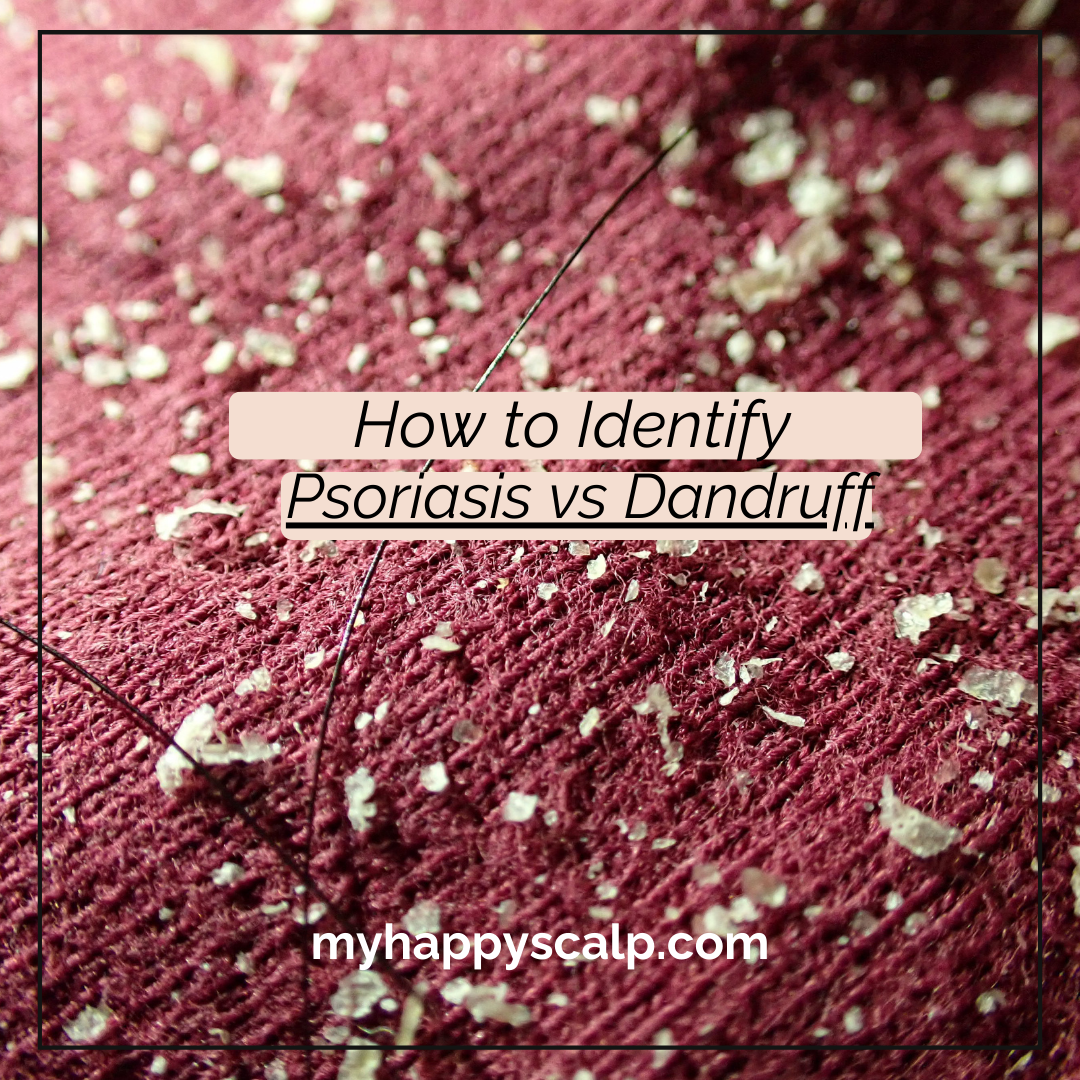Scalp Psoriasis vs. Dandruff: How to Identify and Treat the Difference
Understanding the difference between scalp psoriasis and dandruff is crucial for effective treatment. Although both conditions can cause an itchy and flaky scalp, they have distinct characteristics and require different treatments. This article will guide you through the identification and treatment options for scalp psoriasis and dandruff, helping you determine which condition you may be experiencing.
What is Scalp Psoriasis?
Understanding Scalp Psoriasis
Scalp psoriasis is a chronic autoimmune condition that results in the rapid growth of skin cells, forming red, scaly patches with silvery-white scales on the scalp. It can cause itching, soreness, and discomfort. These patches may extend beyond the hairline to the forehead, neck, or behind the ears.
Causes and Triggers of Scalp Psoriasis
The exact cause of scalp psoriasis isn't fully understood, but genetic and immune system factors play a significant role. Common triggers include:
- Genetic factors: A family history of psoriasis increases the likelihood of developing this condition.
- Autoimmune response: The immune system mistakenly attacks healthy skin cells, leading to rapid cell growth.
- Triggers: Stress, weather changes, infections, skin injuries, and certain medications can trigger scalp psoriasis flare-ups.
What is Dandruff?
Understanding Dandruff
Dandruff is a common scalp condition characterized by white or yellow flakes that shed from the scalp. Itching, dryness, and an oily scalp often accompany it, making the condition uncomfortable but not usually painful.
Causes of Dandruff
Several factors can contribute to dandruff, including:
- Overgrowth of Malassezia fungus: This fungus feeds on scalp oils, leading to irritation and flakiness.
- Seborrheic dermatitis: An inflammatory condition that causes oily, scaly patches on the scalp.
- Dry skin and sensitivity to hair products: Cold weather, harsh shampoos, and certain hair products can worsen dandruff.
Scalp Psoriasis vs. Dandruff: Key Differences
Visual Differences
- Scalp Psoriasis: Red patches with silvery scales that may be thick and cover larger areas. The patches can extend beyond the hairline.
- Dandruff: Smaller, white or yellow flakes that are less thick. It typically stays confined to the scalp.
Symptom Differences
- Scalp Psoriasis: Causes itching, pain, soreness, and even bleeding when scratched.
- Dandruff: Causes itching and flakiness but rarely leads to pain or inflammation.
Causes and Triggers Differences
- Scalp Psoriasis: An autoimmune condition with genetic factors and specific triggers.
- Dandruff: Caused by fungal overgrowth, seborrheic dermatitis, or dry skin, often aggravated by hair products or weather.
Diagnosis: How to Identify Scalp Psoriasis vs. Dandruff
Consulting a Trichologist
A professional diagnosis is essential, especially if other solutions haven’t worked. Trichologists can distinguish between scalp psoriasis and dandruff based on symptoms and medical history.
Tests and Examinations
Trichologist a hair and scalp examination to confirm whether you have scalp psoriasis or dandruff.
Treatment Options for Scalp Psoriasis & Dandruff
The Antifungal Bundle
- Oil Therapy: Reduce inflammation and itching.
- Antifungal Shampoo: Help slow down skin cell growth.
- Antifungal Conditioner: Help reduce scaling, itching, and inflammation.
Supplements to Take
- Omeg-3: Aids in reducing inflammation.
- Vitamin D: Corrects fast cell overturn that causes psoriasis by slowing down the process.
Home Remedies and Lifestyle Changes
- Oil Pulling: Detoxifies and heals the scalp of inflammation
- Coconut oil: Helps soften scales and hydrate the scalp.
- Jojoba Oil: Improves scalp health and reduces redness
- Ivy Extract: Reduces inflammation and improves scalp health
When to Seek Help for Dandruff
Seek professional advice if your dandruff worsens, doesn’t improve with treatment using the Antifungal Bundle, or causes redness, swelling, or intense itching.
Preventing Scalp Psoriasis and Dandruff Flare-Ups
Scalp Care Tips
- Use gentle shampoos: Avoid products with harsh chemicals or fragrances.
- Keep the scalp clean and moisturized: Regular cleansing prevents product build-up and dryness.
Diet and Lifestyle Tips
- Foods to include: Omega-3 fatty acids, fruits, and vegetables can improve scalp health.
- Stress management: Practice relaxation techniques such as yoga or meditation.
FAQs about Scalp Psoriasis and Dandruff
- Can scalp psoriasis turn into dandruff or vice versa? No, they are distinct conditions, but one can experience both simultaneously.
- Is it possible to have both scalp psoriasis and dandruff at the same time? Yes, it’s possible to have both conditions concurrently.
- What shampoo is best for both conditions? The Antifungal Shampoo due to its antifungal, antibacterial, antifungal and antimicrobial properties.
- Are there specific triggers that make both conditions worse? Stress, cold weather, and certain hair products can worsen both conditions.
- How often should I wash my hair if I have scalp psoriasis or dandruff? It varies per individual, but washing 2-3 times a week using the antifungal shampoo can help manage symptoms.
Scalp psoriasis and dandruff can look similar, but they have distinct differences. Identifying the correct condition is crucial for proper treatment. Always consult a healthcare professional if you’re unsure or if your symptoms persist.


